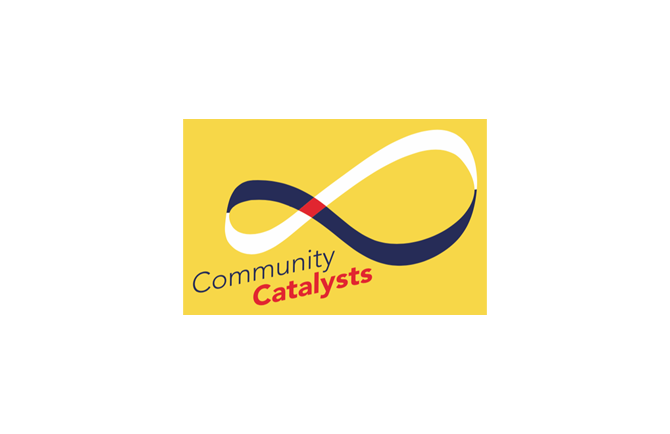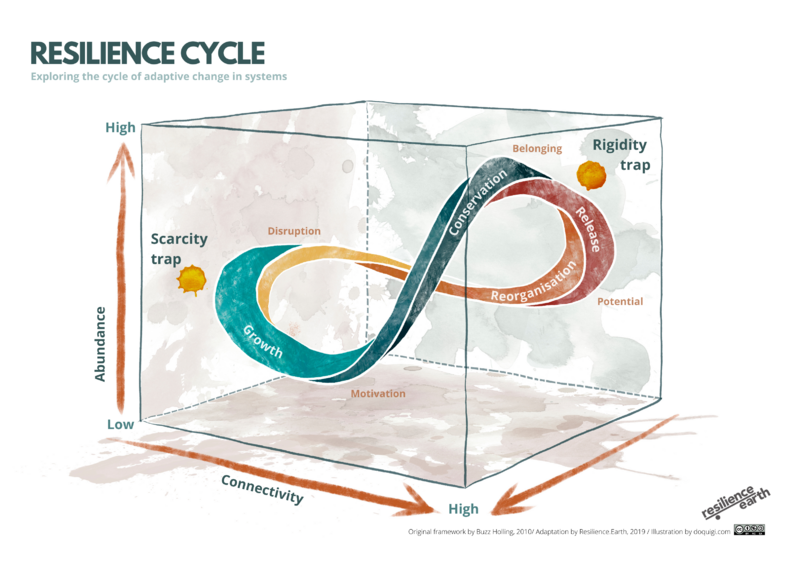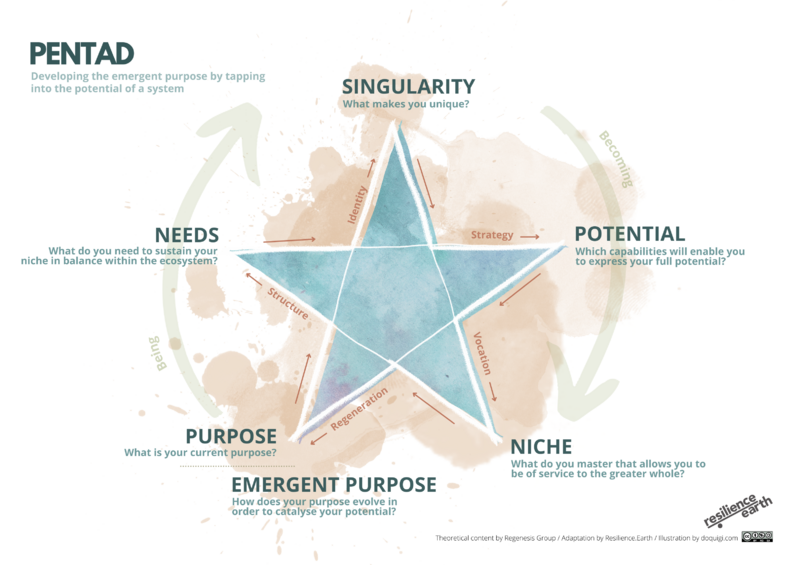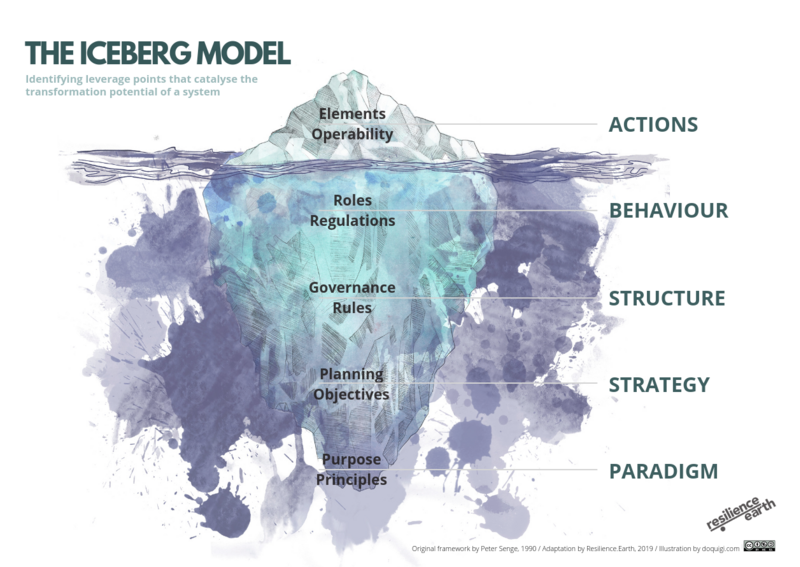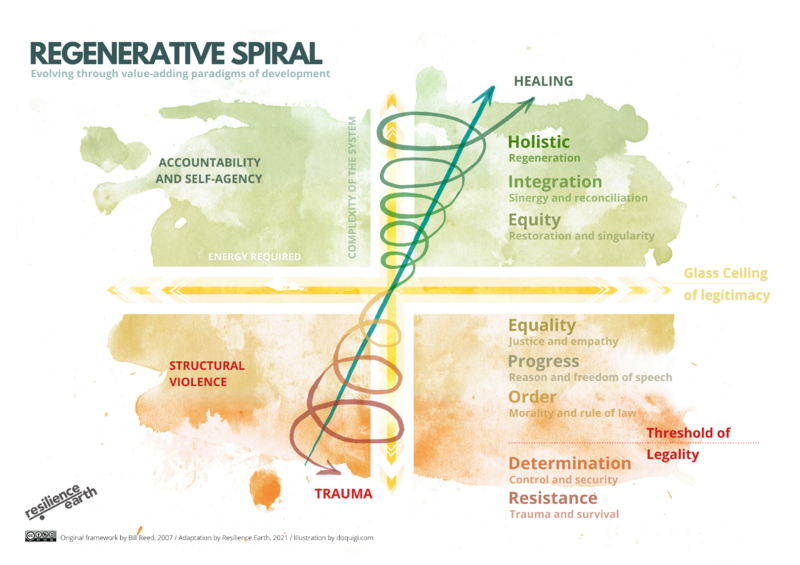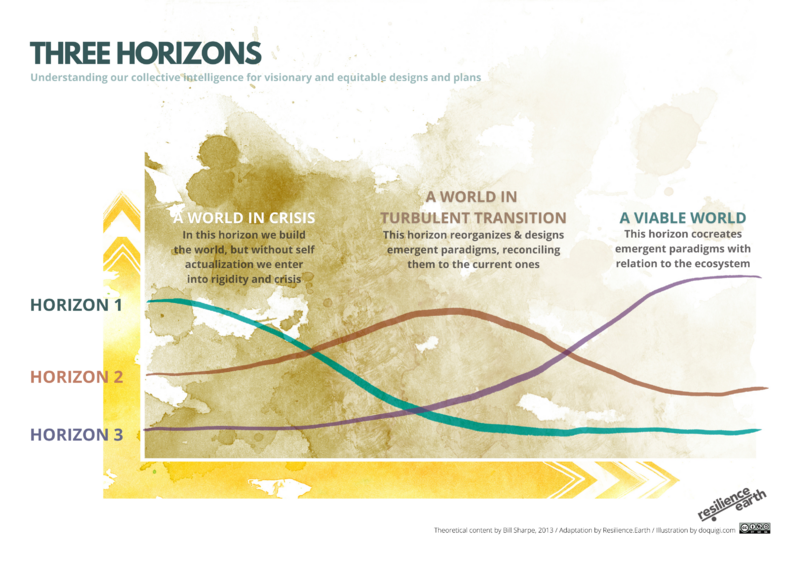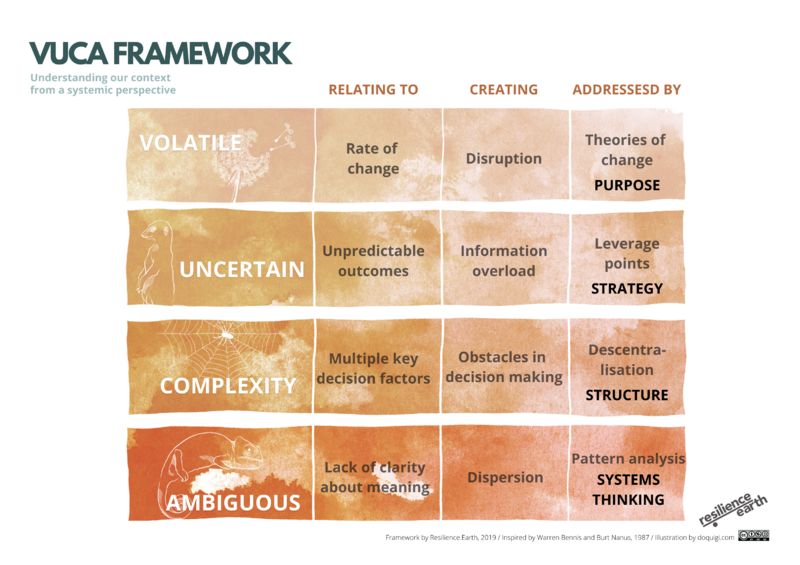FEEDING THE SOIL
Stop, breathe and celebrate! The 'Landscape Integrity' and 'Co-Sensing' phases are the moments when you look at the landscape with the community you are part of. Before jumping into identity naming, co-designing and implementation, the invitation of the curriculum is for another brown moment, adding compost to the soil and going deeper in the inquiry you have been exploring so far.
- Form a study group, acknowledging each other as peers in this learning journey;
- Look back at the definition of Transformative Economies, share any insights around the concepts and how such calls for transformation are coming to life in the world and in your initiative;
- If appropriate, create a generative question that is enriching your transformative process and share it around it.
In this conversation there is no right or wrong, and at this point there are no decisions to be made or strategies to be created. There is an intention to open our minds to deeper, more complex and interconnected perceptions of the transformation process you are in. Share and listen actively from and to that space. Take any necessary notes and let this moment nourish you.
To go deeper into the topics and the frame, you can also access the two Community Catalyst guidelines: Regenerative Development and Transformative Economies. They are documents written by the Community Catalyst consortium to frame the wider picture behind the tools and practices proposed. Enjoy reading!
Now come back to the WeBoard, continuing the vortex movement into the next phase!
